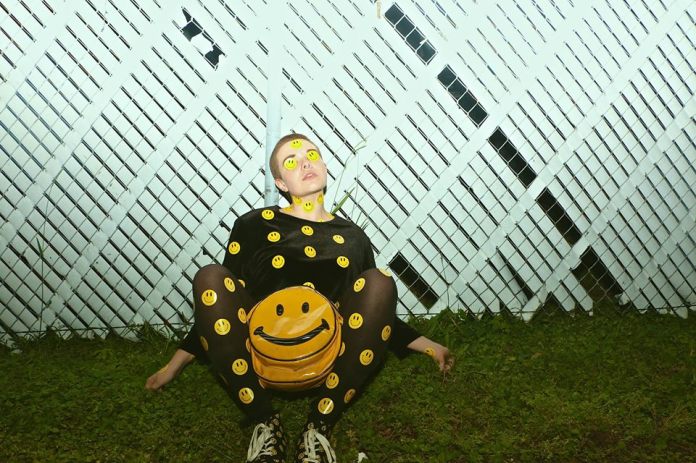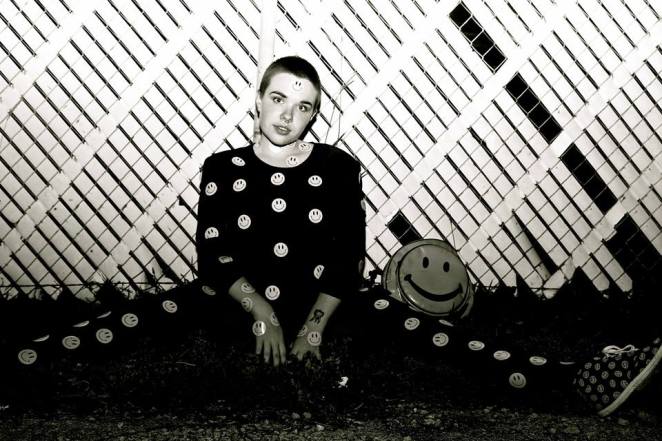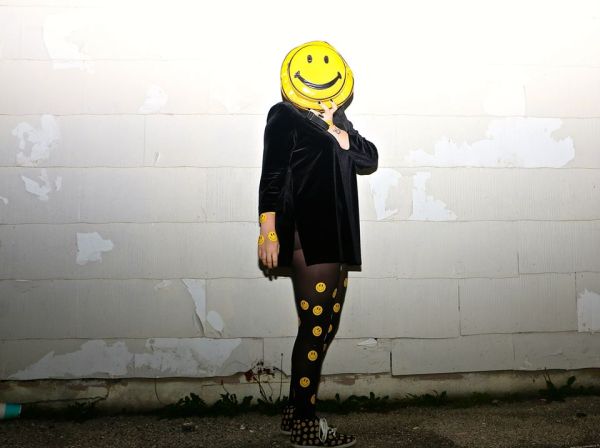
An Interview with Johan Collins
Written by Eric Gasa, artwork by Andreus Gasa
Hearing the story of band promoter, Johan Collins is on par to a colorful anthology of Springfield Mo’s music scene. Collins, 35, has been blazing a psychedelic streak into the white bread suburbs of southwest Missouri for 13 years, and with it he brings a wealth of industry wisdom and stories of a town that not too long ago, really didn’t have a music scene at all.
“When I moved up from New Orleans there was nothing here…” Collins shakes his head, “like absolutely nothing here that I wanted to listen to,” he says one night in the foyer of his new music venue, The Drop, located across from Hero’s Coffee on Boonville Avenue, just outside the Springfield Square. “That’s where I saw my chance as a promoter in this town.”
The Drop is one handsome looking place; wood interior, stylish furniture, modern art hanging on the wall. The atmosphere tonight is light and airy, as we talk over a rustic coffee table, sitting below gentle, ambient lights.
In the room behind me I can hear a vocalist cuing his sound check while droves of Millennials walk in and out of the room carrying loads of audio and lighting equipment.
Even though The Drop’s grand opening show is only days away the place is still very much a project in motion. Collins gives us a quick tour of the place as we walk past the foyer and into the backroom. We enter a large, grey factory floor-like room, filled with table saws and woodworking equipment.
“Yeah, we’ll have this stuff moved out for a second stage,” Collins explains, “and this,” he motions to a shadowy off ramp on the far side of the room lowering down into the basement, “is where this place gets its name.”

The Drop mainstage
So contrary to popular belief, The Drop is thankfully not christened after the bass drop of a dubstep song but something much, much cooler.
Collins flicks on a light switch when we reach the end of the ramp and reveals the impressively roomy, low-ceiling basement of the venue.
“This space is gonna be big,” he says “I’m thinking 200 people, and right here we will have another stage and a deck for the crowd.”
One look at it and I’m thinking rundown-chic art venue of my dreams. Strangely, the place reminds me of that walk off scene from Zoolander.
For now, an abandoned mannequin occupies an empty corner in the room. In the weeks to come it will be easy to envision this place stacked to the ceiling with concertgoers.
“This project has been my dream for six or seven years,” Collins explains, “The Drop is my vision, my baby. I mean wasn’t Obama’s slogan ‘change’? And didn’t he wind up being the Prez? So change, man. Change is good for everybody. That is why I am opening up this place.”

We return to the couch and Collins begins to share his experiences as a promoter.
Collins is responsible for bringing many indie gems to the Queen City such as Neon Indian, Tycho, Bass Drum of Death, Classixx, The Very Best, and most recently, Canadian band, TOPS. But the biggest act to his credit is dubstep artist Bassnectar.
“Yeah, Bassnectar contacted me about playing a fest and he wasn’t even the headliner. But I could tell this guy was doing something different,” Collin says, “He was bringing the bass but a different type of dub.”
Today, Bassnectar sells hundreds of thousands of tickets worldwide, playing everywhere from Lollapalooza to Coachella to Electric Daisy. But this was back in 2006 and in the backwoods of Wilsons Creek of all places.
“Funny story,” he continues, “but the cops hadn’t been called on us this entire time. So Saturday comes and I tell Nectar that we have two choices: one, play it safe and finish the show, or two, really push the wattage and have the cops show up. Guy looks me right in the face and says, ‘What’s my fucking name again?’”
Long story short, Bassnectar’s set only lasted 30 minutes before police arrived, responding to noise complaints over two miles from the festival.
But not all shows are this successful or raucous. Collins describes his debacle with internet rapper Slim Jesus.
“Slim was the worst thing I have ever fucking done,” Collins admits, shaking his head, “Guy only played four songs…and he played ‘Drill Time’ twice. Like what the fuck? I mean I only booked him for a selfie. He costed me like $1500 for trashing the hotel room. Trust me, I had a lot of offers to beat him up.”
But white rappers trashing hotels aren’t the only challenge as a band promoter in Springfield. This city has its share of tough crowds too.
“I live in a town where Korn and Nickelback will sell out the Shrine Mosque,” he says, “Some people just aren’t as open minded and don’t understand what I am trying to do here and there’s nothing wrong with that. I’ve never gone for the stuff that sells out anyways.”
The Drop’s opening night featuring Wick-It the Instigator
Collins’ mission statement is admirable. He later tells me that 9/10 shows he loses money but that doesn’t bother him at all. This guy is just trying to fight the good fight.
“It takes a certain type of person to book shows in Springfield. I can’t even name half of the promoters who were in this town 13 years ago caused they’re all gone now.”
Collins continues.
“Springfield is a four year town. It’s a new generation every four years. I remember in 2006 and 2007, back when dance rock [Bloc Party, Phoenix, Franz Ferdinand] was in, we hit the scene right on the nose. But then four years later and all of my camera guys, artists, sound techs just all ‘poof’ disappeared…it’s kind of depressing really.”
But that’s just how scenes go in a college town. People graduate, get married, pregnant or arrested. But Collins is hopeful. Everyone comes back eventually.
“People move away hating Springfield. They all want to go to LA or New York until they get there and realize how fucking expensive the real world is. And that’s exactly it! Because Springfield is unlike the rest of the world! We have a good spot here.”
Collins’ journey has come a long way since the early aughts, back when Lindbergh’s was After Hours, and he played shows in an old warehouse that he jokingly dubs the “X-rated ninja turtle hub.”
“It would rain and leak through the roof and you would come out with black stuff on your shirt from mold,” he says, “But it was the craziest place, people doing graffiti, there was a halfpipe…best scene ever.”
Dreamgirl, Collins with Montreal band, TOPS
Collins aims to bring back the energy of this era but also explains that its not the venue that makes the scene but the people and the music that you fill it with.
“We have a super good crew. We started Springood because everything we do is good and we’re giving it all to Springfield,” he says, “The stuff we do would sell out in Austin [Tx], New York or Chicago but I would rather bring in 100 people who get it than pull 10,000 people who don’t have a clue…my end goal is to build a bridge to all titles. Unite the genres. Even if it’s just for 100 people.”
By the end of the interview Collins is tangibly excited. He shows me some of the acts he’s booked on YouTube and smiles.
“Man, at the end of the day I get the satisfaction of turning people into good music. Like stuff they’ve never heard in their whole lives.”
He grins.
“Fuck the negative. That is what makes it all worth it.”







